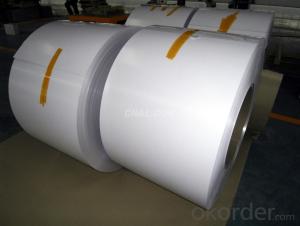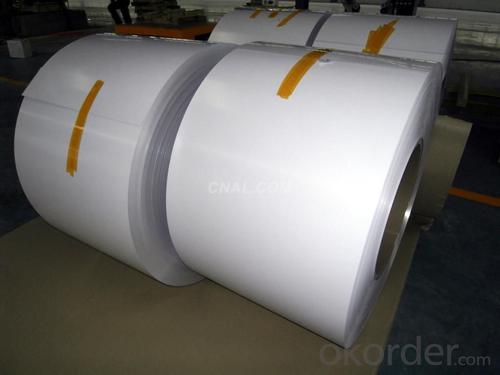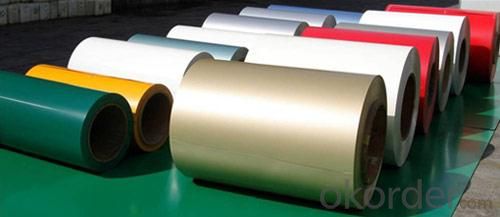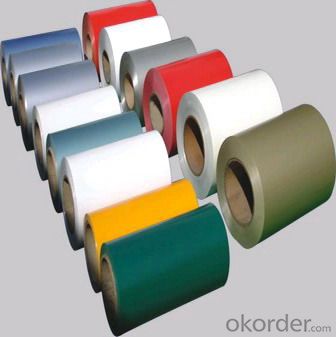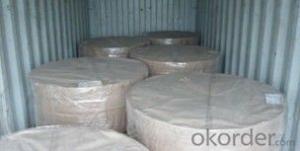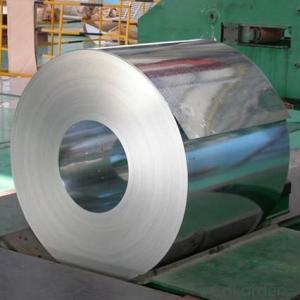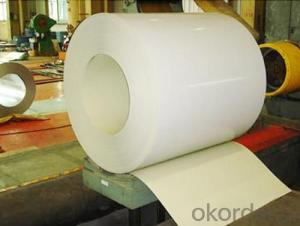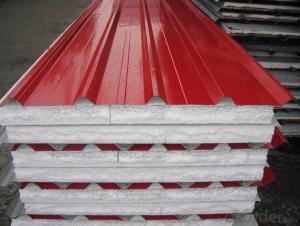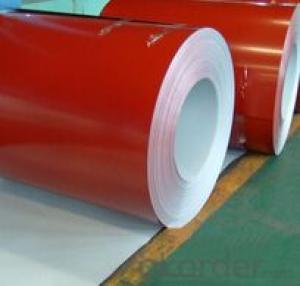Prepainted Steel Coil in Good Condition
- Loading Port:
- Tianjin
- Payment Terms:
- TT or LC
- Min Order Qty:
- 3 m.t.
- Supply Capability:
- 300 m.t./month
OKorder Service Pledge
OKorder Financial Service
You Might Also Like
Size
1)0.6-1.2mm Steel 3004
2)5.53-19.85usd/m
3)ASTM;JIS standard
4)usde for roof/wall
5)industrial ral color aluminum sheet
Description
1 Advantage of standing seam metal roofing
(1)-Easy installation
(2)-High strength
(3)-Low in costs
(4)-Durable
(5)-Nice appearance
(6)-Anti oxidation
2 Raw materials of standing seam metal roofing
(1)-Aluminum sheet
(2) Prepainted aluminum sheet
(3)-Pre painted galvanized steel sheet
(4)-Galvalume steel sheet
(5)-Pre painted galvalume steel sheet
(6)- Hot dipped galvanized steel sheet
3. Color of standing seam metal roofing
(1) Normal color-Ocean blue (RAL5002); Grey white (RAL 9002)
(2) Popular color -Bright red
(3) Special color-Any other colors you request
4 Paint of standing seam metal roofing
(1) Face paint name -PE; HDP; SMP; PVDF
(2) Face paint detail-Two layers; 20-25um
(3) Back paint name-PE grey white color
(4) Back paint detail-One layer 5-7um
5 Technical of standing seam metal roofing
(1) Forming type-Cold form
(2) machine-Rolling form machine
Applications
(1)-Roof
(2)-Wall
(3)-Ceiling
(4)-Fence
Loading of standing seam metal roofing
(1)20GP size-5.85M (L)*2.23M (W)*2.258M (H)
(2) 40GP size-11.8M (L)*2.23M (W)*2.258M (H)
(3) Chose 1-Max length ≥ 5800mm; we use 20GP
(4) Chose 2-Max length ≤ 5800mm; we use 40GP
(5) Introduction of 20ft container
Standard and certificate of standing seam metal roofing
(1) standard-GB/T 12755-2008; ASTM; JIS
(2) certificate-ISO9001-2008
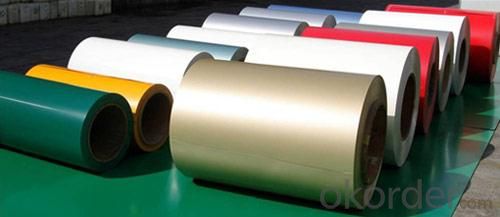
- Q: Can steel sheets be used for food processing equipment?
- Steel sheets are indeed capable of being utilized for food processing equipment. People often favor stainless steel for such equipment because of its ability to endure, resist corrosion, and facilitate easy cleaning. Furthermore, stainless steel does not react with food nor does it impart any undesirable flavors or odors. Steel sheets can be molded into various shapes and sizes, rendering them suitable for different kinds of food processing equipment including mixers, conveyors, tanks, and cutting blades. Moreover, stainless steel also possesses resistance to high temperatures, thus making it perfect for applications involving heat. In conclusion, steel sheets are a dependable and sanitary material option for food processing equipment.
- Q: What are the common sizes of steel sheets?
- Common sizes of steel sheets vary depending on the industry and application, but some standard sizes include 4x8 feet (1.2x2.4 meters), 4x10 feet (1.2x3 meters), and 5x10 feet (1.5x3 meters). Other sizes may also be available depending on the manufacturer and customer requirements.
- Q: Are the steel sheets resistant to warping or twisting?
- Yes, steel sheets are highly resistant to warping or twisting due to their inherent strength and rigidity.
- Q: Are the steel sheets suitable for agricultural applications?
- Yes, steel sheets are suitable for agricultural applications due to their durability, strength, and resistance to rust, making them ideal for construction of farm buildings, equipment, and fencing.
- Q: What is the typical price range for steel sheets?
- The price of steel sheets can fluctuate based on multiple factors, including the type and grade of steel, the thickness and size of the sheets, and the prevailing market conditions. Typically, the price range for steel sheets can vary from approximately $30 to $200 per sheet. Nevertheless, it is crucial to bear in mind that these figures are only approximate and can experience substantial fluctuations. To obtain the most precise and current pricing details for steel sheets, it is strongly advised to consult local suppliers or manufacturers.
- Q: How thick are steel sheets typically?
- Steel sheets can vary in thickness depending on their intended use, but they typically range from 0.5 to 6 millimeters thick.
- Q: What's the best way to open a 10mm thick steel sheet?
- Steel plate is a kind of flat steel with big width ratio and large surface area. According to the thickness of plate Ya divided into thick and thin plates two specifications.
- Q: Can steel sheets be used for agricultural buildings or barns?
- Agricultural buildings or barns can indeed make use of steel sheets. The utilization of steel sheets for such structures offers a plethora of benefits. To begin with, steel is a robust and enduring material, guaranteeing the longevity of the agricultural building or barn even in the face of various weather conditions and the test of time. Additionally, steel is resistant to pests, such as termites, which often pose significant problems for wooden structures. Moreover, steel sheets possess fire-resistant qualities, thus providing an extra layer of safety. Furthermore, steel sheets allow for a high degree of customization, enabling flexibility in design and construction. They can be easily cut and shaped to suit the specific needs and requirements of the agricultural building or barn. Steel sheets are available in various thicknesses, offering options for different levels of strength and structural integrity. In addition, opting for steel presents an environmentally friendly choice for agricultural buildings or barns. This is due to steel being a recyclable material, meaning that it can be repurposed and reused at the end of its lifespan. This not only reduces waste but also minimizes the environmental impact. Taking all these factors into consideration, it is evident that steel sheets are an excellent option for agricultural buildings or barns, given their durability, resistance to pests, fire resistance, customizability, and environmental friendliness.
- Q: How do steel sheets perform in terms of noise reduction?
- Steel sheets have excellent noise reduction properties due to their high density and stiffness. They effectively absorb and dampen sound waves, resulting in reduced noise transmission and improved acoustic insulation.
- Q: What are the limitations of using steel sheets?
- There are several limitations associated with using steel sheets in various applications. Firstly, steel sheets are relatively heavy compared to other materials, which can pose challenges in terms of transportation and installation. This weight can also limit their use in applications where weight reduction is critical, such as aerospace or automotive industries. Secondly, steel sheets are susceptible to corrosion, especially when exposed to moisture and chemicals. If not properly protected, this can lead to rusting and a decrease in structural integrity over time. Therefore, additional coatings or treatments are often required to prevent corrosion, adding to the overall cost and maintenance requirements of steel sheet usage. Another limitation is that steel sheets have limited flexibility and cannot be easily molded or shaped into complex forms. This restricts their use in applications where intricate designs or curved surfaces are required, such as in the construction of curved roofs or architectural structures. Furthermore, steel sheets have poor thermal insulation properties, meaning they conduct heat and cold more readily than other materials. This can result in temperature fluctuations and energy loss in buildings, requiring additional insulation measures to maintain thermal comfort and energy efficiency. Lastly, steel sheets are a finite resource and their production can have a significant environmental impact. The extraction of raw materials, energy consumption, and carbon emissions associated with steel production make it less sustainable compared to alternative materials. In summary, while steel sheets are widely used for their strength and durability, their limitations include their weight, susceptibility to corrosion, limited flexibility, poor thermal insulation properties, and environmental impact. These limitations should be considered when selecting materials for specific applications.
Send your message to us
Prepainted Steel Coil in Good Condition
- Loading Port:
- Tianjin
- Payment Terms:
- TT or LC
- Min Order Qty:
- 3 m.t.
- Supply Capability:
- 300 m.t./month
OKorder Service Pledge
OKorder Financial Service
Similar products
Hot products
Hot Searches
Related keywords
